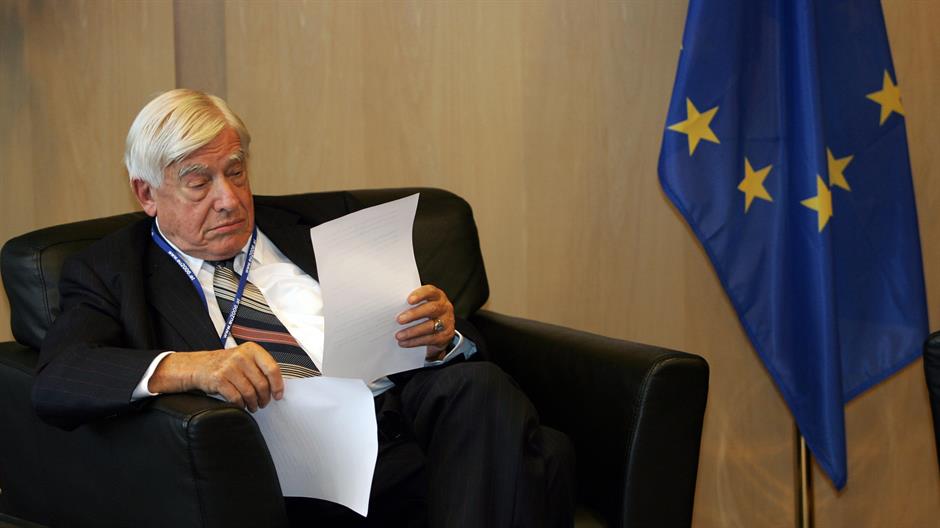
The leaders of the strongest Bosnian Serb and Bosnian Croat parties are testing the patience of the international community, Bosnia’s former international administrator, Christian Schwarz Schilling, told the Heinrich Boll foundation, adding that the current international administrator has the means to stop them and that this will likely happen soon.
Schwarz-Schilling was the High Representative in Bosnia between 2006 and 2007, tasked with monitoring the civilian implementation of the 1995 Dayton Peace Agreement, which ended the Bosnian war and contains the country’s Constitution.
"Unfortunately, the nationalists use every political occasion, such as the 25th anniversary of the Dayton Agreement, to impose their nationalist and secessionist slogans. Sadly, this is the order of the day in Bosnia, and the worst thing is that everyone has got used to it; both the Bosnians and the International Community (IC). Fifteen years ago, such a thing would not have been tolerated. Nowadays, we take note of it and that was it. I just wonder for how long?" he told the Heinrich Boll foundation.
The alliance between Bosnian Serb Presidency member, Milorad Dodik, and the leader of the strongest Bosnian Croat Party, Dragan Covic, is nothing new and has represented a problem for a while already, he said.
Bosnia is, according to the Dayton Agreement, composed of two semi-autonomous entities - the Serb-majority Republika Srpska (RS) and the Federation (FBiH), mostly shared between Bosniaks and Croats.
“The plan is to create a third entity – that is what the Croats want – while the Serbs want to split the Republic of Srpska from Bosnia-Herzegovina. But they know very well that both of it is impossible. Nevertheless, they continue to play their game together, with the aim to create concern and fear among people, in order to retain their power and manipulate the elections," he said. "In doing so, they are testing the patience of the IC, because everything they do is against the governing law."
He argued that this policy, coupled with propaganda and hate messages, "is indeed very dangerous."
"They represent a lasting threat to peace in the region. When constantly confronted with hate messages, secessionist and nationalist slogans from all sides, it clearly drives many into political extremism, where there is no more talk of coexistence in a multi-ethnic state any longer. This is when hatred reigns; and that is is very dangerous. In such an environment, you really have to have a strong character to find the truth and the right attitude. You see how important it is to have honest politicians in leadership positions."
While the High Representative and the international community have warned about what is going on in Bosnia and clearly stated that the Dayton Agreement must not be undermined, this has not been enough, he argued.
The German diplomat said that until the international community does not take stricter actions, the behaviour of the Croat Democratic Union (HDZ BiH) and the Alliance of Independent Social Democrats (SNSD) will be getting increasingly worse.
“I think we need to act more decisively and not leave everything to warnings. The High Representative has the instruments to do so. What is needed is the appropriate political will. I think it will happen soon,” he said.
Neighbouring Serbia and Croatia have, according to him, never given up on their efforts to acquire Bosnian territory and “behave as if Bosnia was their colony.”
"It is incredible how they circumvent and ignore the Bosnian state institutions. HDZ B&H and SNSD act the way they do because they feel supported in their agendas by Serbia and Croatia," he said.
Kakvo je tvoje mišljenje o ovome?
Učestvuj u diskusiji ili pročitaj komentare





 Srbija
Srbija
 Hrvatska
Hrvatska
 Slovenija
Slovenija







